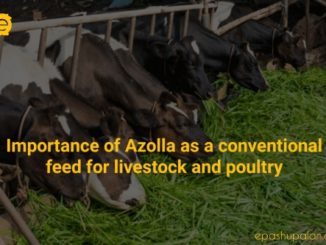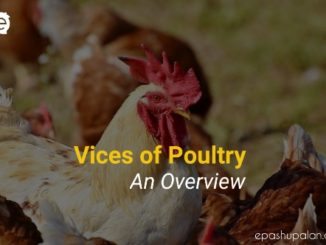MYTH – Raw eggs provide more protein than cooked eggs
FACT – Not only the above statement is wrong; also gulping down raw eggs may lead to diseases that are transmitted by eggs, Salmonellosis being on the top of the list. This is a common misconception about egg due to the projection of raw eggs as a body builder’s food. It is myth that raw eggs provide double the protein than that provided by the boiled eggs. In fact, raw eggs have a biotin binding factor i.e. Avidin which leads to decreased absorption of biotin and biotin deficiency in the body.
MYTH – All brown shelled eggs are organic
FACT – Not at all! The colour of the egg depends on the colour of the earlobe of the hen laying it. In fact, hen with red earlobes lay brown shelled eggs and those with white ear lobes lay white eggs. “White Leghorn” is the breed of choice to produce the conventional white shelled table eggs which are available in the market. The eggs are organic or not depends on which type of farm they are produced. Even white shelled eggs can be organic in nature if they are reared in organic farms.
MYTH – Eggs should be washed before consumption as washing eliminates the risk of Salmonellosis
FACT – Well, we must understand that it is the egg shell that makes egg, the most unadulterated source of protein. It is the shell which protects it from the harsh outer environment and restricts the entry of certain pathogens. The egg shell is covered by a layer of thin cuticle, which is removed by washing thereby exposing the egg shell pores to the environment. Hence, washing may render it vulnerable to pathogens. As far as Salmonella infection is concerned, it cannot be removed by washing the egg shell as the organism (if present) is found inside the egg and not on the surface.
MYTH – Every egg can hatch into a chick
FACT – Absolutely not! Hens lay eggs throughout the season, irrespective of the fact that they are housed with male chickens or not. Hens which are housed with no male chicken lay unfertilized eggs, i.e they cannot hatch into a baby chicken as there is no fertilization or embryo inside them.
MYTH – Egg yolks can lead to increase in cholesterol level in body
FACT – Humans require about 1g of cholesterol per day to maintain proper membrane permeability, fluidity and synthesis of steroid hormones, vitamin D and bile acids. The human liver produces 800 mg of cholesterol every day and we take in an additional around 150-200 mg a day through our food. Thus, human body makes five times more cholesterol than we eat. So, even if we consume eggs, the daily body requirements of cholesterol are not met and our liver produces the remaining amount to fulfill the requirements.
MYTH – Accidental consumption of eggshell is a serious health hazard
FACT – Sometimes while cooking, a piece of eggshell may find its way to the cooking pan and in turn our mouth. People think that accidental ingestion of an eggshell is a serious life threat which is not true. The truth is that, it has no adverse effect on health. Although, if the piece ingested is large enough, it might cause mechanical trauma to the oesophagus and may lead to bleeding but such cases are rare.
MYTH – Fertilized eggs are nutritionally superior than the unfertilized eggs
FACT – There is no difference in the nutritional values of fertilized and unfertilized eggs. The only difference is that the fertilized egg has the potential to produce a baby chicken and unfertilized egg does not.
MYTH – Blood spot in eggs means that the egg is fertilized
FACT – It takes a lot more than just a blood spot to identify if the egg is fertilized or not. There are people who are trained specifically only to differentiate the fertilized and unfertilized eggs hence it’s not a child play. Blood spot found in the egg is formed when the oviduct suffers from some trauma. During the process of egg formation, a drop of blood may have been incorporated in the egg thereby resulting in blood spot in the egg. It is not an indication of egg fertility.
MYTH – The white strings attached to yolk are unfit for consumption and should be removed before cooking
FACT – The opaque white strings found attached to the yolk of the egg are called as ‘chalazae’ which actually functions to hold the egg yolk in its position. Consumption of ‘chalazae’ is not life threatening or dangerous as it is basically proteinaceous in nature and cooking them along with other egg parts is totally an individual’s choice.
MYTH – There are number of ‘Synthetic eggs’ and ‘Plastic eggs’ available in market
FACT – Plastic eggs as kid’s toys are available in the market and are not for consumption. However, the belief that eggs are made synthetically in factories just like synthetic milk is not true. Eggs are considered as the cheapest and one of the best sources of protein available in the market. It is also the most unadulterated source of nutrients; hence no such thing like ‘synthetic egg’ or ‘plastic egg’ can be formed.
Another misconception is about the shell membrane of egg which is claimed to be made up of plastic. In fact, shell membrane is a natural component of egg and is produced naturally in the oviduct of the hen.
MYTH – Size of egg depends upon the size of bird
FACT – This is not true as the egg size depends on many factors viz. age of the bird, nutritional condition, type of housing system, stocking density etc. Hence, the perception that small hen lay tiny eggs and vice versa is not true.
MYTH – Exogenous hormones are used for producing eggs in poultry
FACT – Firstly, the use of exogenous hormones as feed additives is banned in poultry and secondly, production of eggs in poultry is a natural process and the bird is not forced to lay eggs. The fact that birds nowadays lay over 300-320 eggs in a year has been achieved by selecting the high egg producing strains of birds and then selectively mating them for higher egg production trait. White Leghorn is one such breed of choice for improved egg production. Hence, there is no use of hormones in the layer industry for egg production.
MYTH –Eggs should not be consumed in summer as they increase heat production in body
FACT –Heat production due to any kind of food is particularly related with the calorific value of food. There are certain fat rich products like cheese, fried products etc. which have a high calorific value and can produce even more heat during metabolism.
Eggs are the cheapest, non adulterated, invaluable source of nutrients. Thus, an attempt to omit Tolkien’s golden treasure from the dietary regimen completely is the worst possible option that India can afford. India has the highest rate of child malnutrition in the world. Thus, it is imperative to understand that not everything that is commonly said or heard about poultry eggs are true. Public awareness about nutritive value and consumption of eggs, which possess high quality protein and are easily affordable, can fight the darkness of myths surrounding this golden treasure and is the key to nutritional security of our country in future.






Informative
very interesting article…
thank you 🙂
Thank you bachha 🙂
Informative and logical article.
Gained much knowledge!!!
Thank you so much 🙂
Thank you so much mausa ji 🙂
It is a very informative article addressing all the myths pertaining to use of eggs among common people. The consumption of cooked egg is safe in every season.
Nice ..